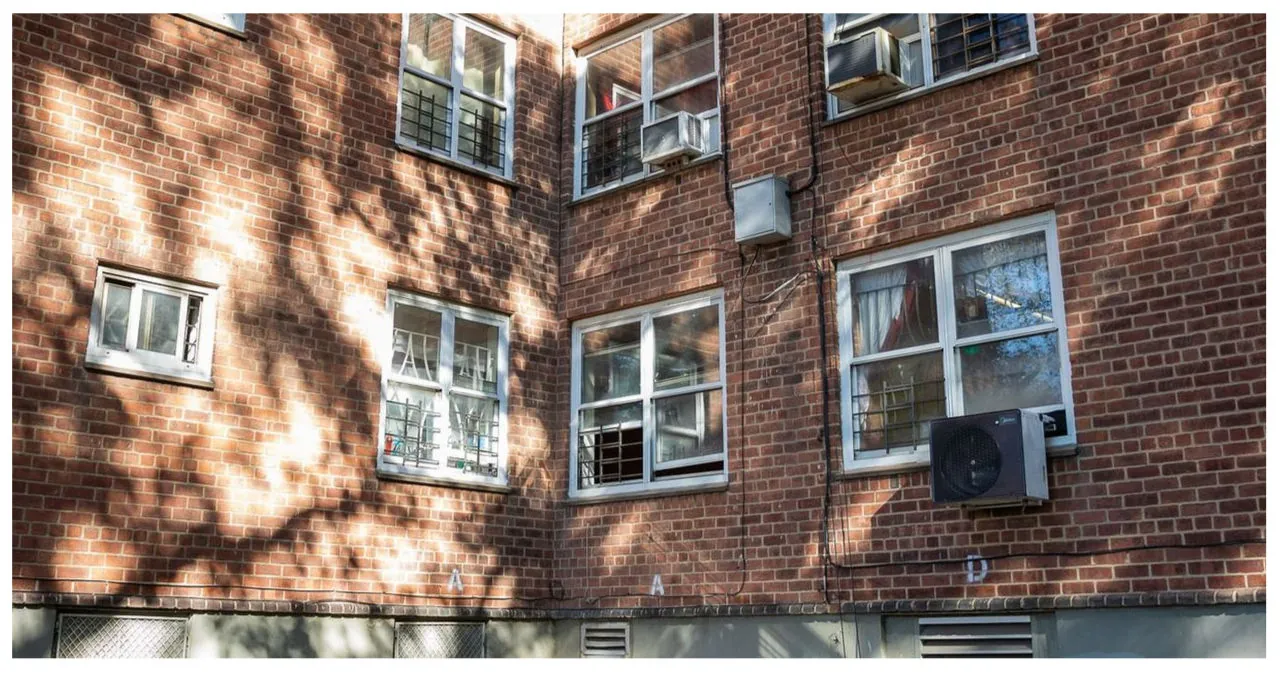Nine states have signed an agreement today to boost the sales of heat pumps. The memorandum of understanding (MOU) outlines a target for heat pumps to represent 65% of residential heating, cooling, and water heating equipment sales by 2030. By 2040, the objective is to have heat pumps capture 90% of the HVAC and water heating market.
Heat pumps offer a more energy-efficient option for both heating and cooling compared to traditional systems. Moreover, since they operate on electricity, they can potentially rely on renewable sources like wind and solar energy in the future, as cleaner power grids become more widespread. The agreement encompasses several states, including California, Colorado, Maine, Maryland, Massachusetts, New Jersey, New York, Oregon, and Rhode Island.
The Memorandum of Understanding (MOU) is not legally binding, so at this point, it may be more of a hopeful aspiration rather than a definitive plan.
The Memorandum of Understanding (MOU) is not legally binding, so it may be seen as more of an optimistic aspiration rather than a definitive plan at this point. The individual states will need to devise their own strategies or provide incentives to facilitate the widespread adoption of heat pumps. Nevertheless, this demonstrates the significant enthusiasm surrounding heat pumps as a means of combating climate change. As national climate policies remain uncertain amidst upcoming presidential elections, the importance of state-led initiatives becomes even more pronounced.
“Although it lacks legal enforcement, the memorandum of understanding (MOU) serves as a symbolic milestone, signifying the collective progress and commitment of states towards a common goal,” explains Emily Levin, senior policy advisor at Northeast States for Coordinated Air Use Management (NESCAUM), the organization leading the initiative to adopt the MOU.
Companies such as Schneider Electric, Siemens, Ikea, eBay, and two major HVAC manufacturers, Trane and Carrier, have expressed their support for the plan. They signed a letter of support for the MOU yesterday.
According to the letter, “Our long-term economic success is at risk due to climate change. It not only affects the health and livelihood of our communities but also disrupts the value chains we depend on.” The letter emphasizes the importance of adopting stronger building decarbonization policies and programs at the state level. It states that such measures will help us achieve both business and state goals more efficiently and cost-effectively, while also reducing health and safety risks associated with climate change.
As part of the MOU, there is a focus on developing an “action plan” to promote the widespread adoption of electric power in residential buildings, with the goal of creating zero-emission structures. This initiative comes in response to the strong resistance from the fossil fuel industry against the prohibition of new gas hookups. Notably, this opposition led to the demise of a groundbreaking proposal in Berkeley, California, where gas stoves were caught in the crosshairs of the nation’s culture wars.
Buildings contribute significantly to pollution, responsible for over a third of greenhouse gas emissions related to energy worldwide. Interestingly, buildings produce more smog-forming nitrogen oxide (NOx) emissions from fossil fuel combustion than power plants in the US. The heating equipment in the nine states that have joined the MOU alone generates over 138,000 tons of NOx and 6,000 tons of fine particulate matter pollution annually.
“Heat pumps and building electrification are the future for creating healthier homes and fostering a thriving green economy.”
According to Serena McIlwain, Maryland’s Secretary of Environment, heat pumps and building electrification are the future for creating healthier homes and promoting a sustainable green economy. In an interview with The Verge, McIlwain expressed her confidence in the growing support from the industry, stating that heat pumps are gaining significant momentum.
In an attempt to make heat pumps more appealing to developers, various initiatives have been undertaken. In 2022, President Joe Biden utilized the Defense Production Act to enhance domestic production of heat pumps and other clean energy technologies. This move resulted in residential heat pumps surpassing gas furnace sales for the first time, accounting for 53 percent of sales. Furthermore, New York City initiated a plan worth $263 million in 2023 to introduce heat pumps in public housing buildings, primarily targeting low-income residents.
The MOU announced today also states that the states will make an effort to allocate at least 40 percent of new investments in efficiency and electrification upgrades for residential buildings to low-income households and disadvantaged communities.
Read More:
- Lawsuit claims Connecticut correctional facility showed deliberate indifference to inmate’s medical needs
- Galveston County jailers accused of failing to inform family about woman’s emergency before her death at hospital

